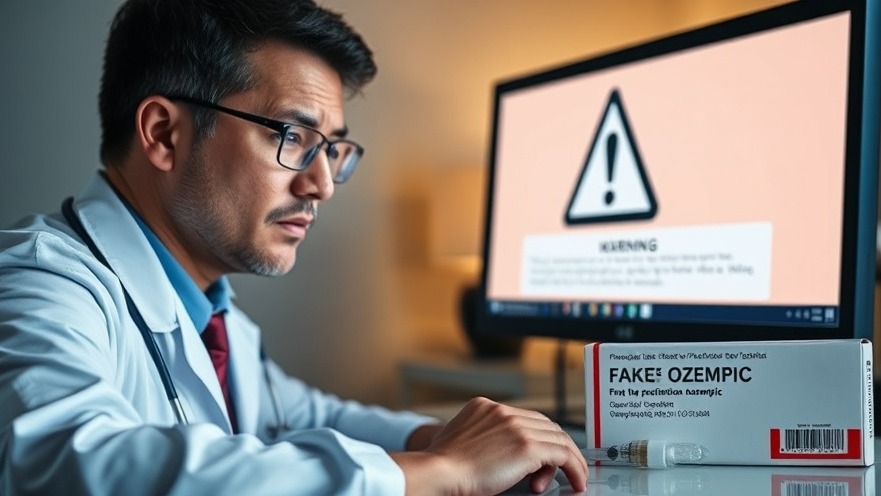
FDA's Warning: What's Happening with Ozempic?
Amid rising concerns over counterfeit drugs, the FDA has issued an urgent alert regarding Ozempic, a medication widely used for managing diabetes and facilitating weight loss. The discovery of fake Ozempic injections in the U.S. supply chain, as confirmed by Novo Nordisk, the drug's manufacturer, poses significant risks to public health and raises questions about safety and regulatory processes.
Understanding the Impact of Counterfeit Medications
The U.S. Food and Drug Administration's findings have revealed hundreds of counterfeit Ozempic pens entering the market. These incidents highlight a growing problem not just with Ozempic but also with other medications, as counterfeit drugs are increasingly becoming sophisticated. With the increase in demand for GLP-1 receptor agonists like Ozempic, an alarming trend has arisen where fake versions of these medications could undermine patient health, initiating a call to action for healthcare professionals and consumers alike to remain vigilant.
Concerns for Concierge Medical Practices
For those in the concierge medical practice sector, this alert calls for heightened attention to medication sourcing and patient education. As practices focus on personalized care, making patients aware of the risks associated with counterfeit drugs and ensuring proper medication distribution can strengthen their trust and relationship. It's vital to lead discussions on how to identify legitimate medications and dispense knowledge about verifying prescriptions.
Steps to Ensure Patient Safety
The FDA's warning specifics include checking the product's lot and serial numbers, especially the identified ones NAR0074 and those starting with 51746517. Practitioners should encourage patients to examine these details on their medications. Furthermore, educators in healthcare must proactively address how patients can safely obtain their medications. Backup protocols should be in place for navigating any suspicion of counterfeit products identified by patients or reported by healthcare providers.
The Role of Patient Engagement in Safety
Empathetic communication stands at the forefront of preventive health measures. In the concierge setting, practitioners can leverage closer patient interactions to discuss medication safety, thereby decreasing anxiety. This can be done through personalized consultations or informative newsletters outlining what to look for in their prescriptions. Engaging with technology, implementing reminders for patients to check packaging details, and fostering a culture where patients feel comfortable reporting suspicions are all proactive strategies.
Protect Your Practice from the Knock-On Effects
As the FDA continues its investigation into these counterfeit medications, healthcare practitioners must be wary of potential knock-on effects on their practices as well. For some, counterfeit drugs can result in unexpected patient side effects or reactions that could impact practice reputation. Ensure your team understands the importance of clear and consistent communication to always keep patients informed.
Conclusion: Be Proactive to Build Trust
For concierge practices determined to stand out, this situation presents an opportunity to reinforce your commitment to patient safety and health literacy. Encourage your team to remain vigilant about counterfeit products and take steps to share information with patients. Open and transparent communication can be essential in building lasting trust and assurance in your care.
Be proactive. Consult your protocols. Ensure your patients know they can rely on you to keep them safe from the dangers of counterfeit medications.
 Add Row
Add Row  Add
Add 






Write A Comment